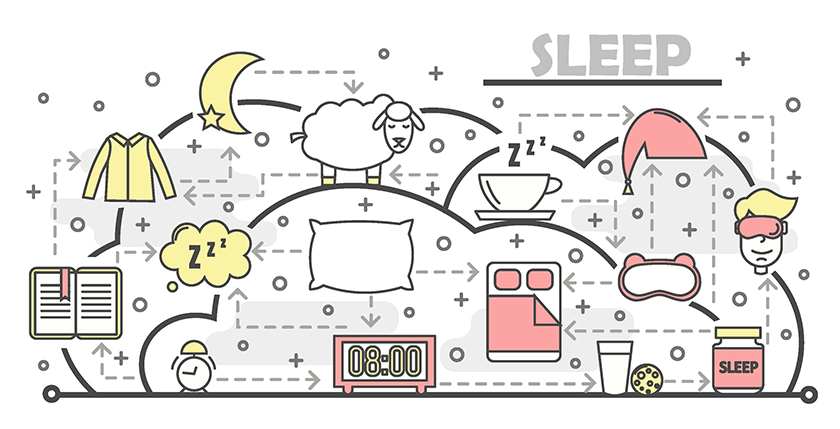The Importance of Sleep for Good Health
The National Safety Council reports that more than 70 million Americans suffer from a sleep disorder while fatigue is estimated to cost employers about $136 billion a year in health-related lost productivity.
For many of us, getting enough sleep every day is rare. When we lose sleep one or two days in a row without catching up on those missed hours, we fall into a sleep debt. Sleep debt makes us fatigued, and fatigue is much more than feeling tired — it is an impairment that can put you and your co-workers at risk.
Researchers advise that you need seven to nine hours of restful sleep every day but, according to an NSC survey, 43 percent of working adults admit to sleeping less than seven hours a day. As a result, our workforce is increasingly fatigued, with one in four workers saying they have fallen asleep on the job in the past month. Often, people do not realize they are fatigued until they are nodding off, but impairment can occur much earlier. By the time you realize how tired you are, you could be dangerously impaired.
This makes fatigue a safety issue both inside and outside the workplace. Without proper sleep at home, you cannot give your best performance at work. Consequently, approximately 13 percent of work injuries could be attributed to sleep problems. You must learn to recognize your level of fatigue and take steps to improve it.
The cost of fatigue is not only measured in lost productivity, but chronic sleep deprivation also causes depression, obesity, cardiovascular disease, and a host of other illnesses. In the workplace, fatigue, and sleepiness – caused by sleep disorders, shift work, [add comma] and sleep deprivation – contribute to absenteeism, presenteeism (poor performance at work), occupational injuries, and workplace accidents.
To get better sleep, it’s important to prioritize proper sleep habits. Some of them include:
- Making your bedroom a designated place for sleep only
- Establishing a family bedtime routine or communicating with your family the importance of your sleep schedule
- Going to sleep and waking at the same times each day, if possible
- Getting up when you need to, not repeatedly hitting snooze
- Avoiding phones, TVs, tablets, and other screens before going to sleep
- Setting a comfortable temperature
- Avoiding distracting lights and sounds
Once you get into a positive sleep schedule, stick to it and be sure to prioritize your sleep going forward.
To learn more, visit: https://www.nsc.org/.../sleep-better-work-better-eng.pdf and https://www.nsc.org/.../fatigue/cost-of-fatigue-at-work
Credit: National Safety Council (NSC)
Learn more about HazTek Safety & OSHA Training.
